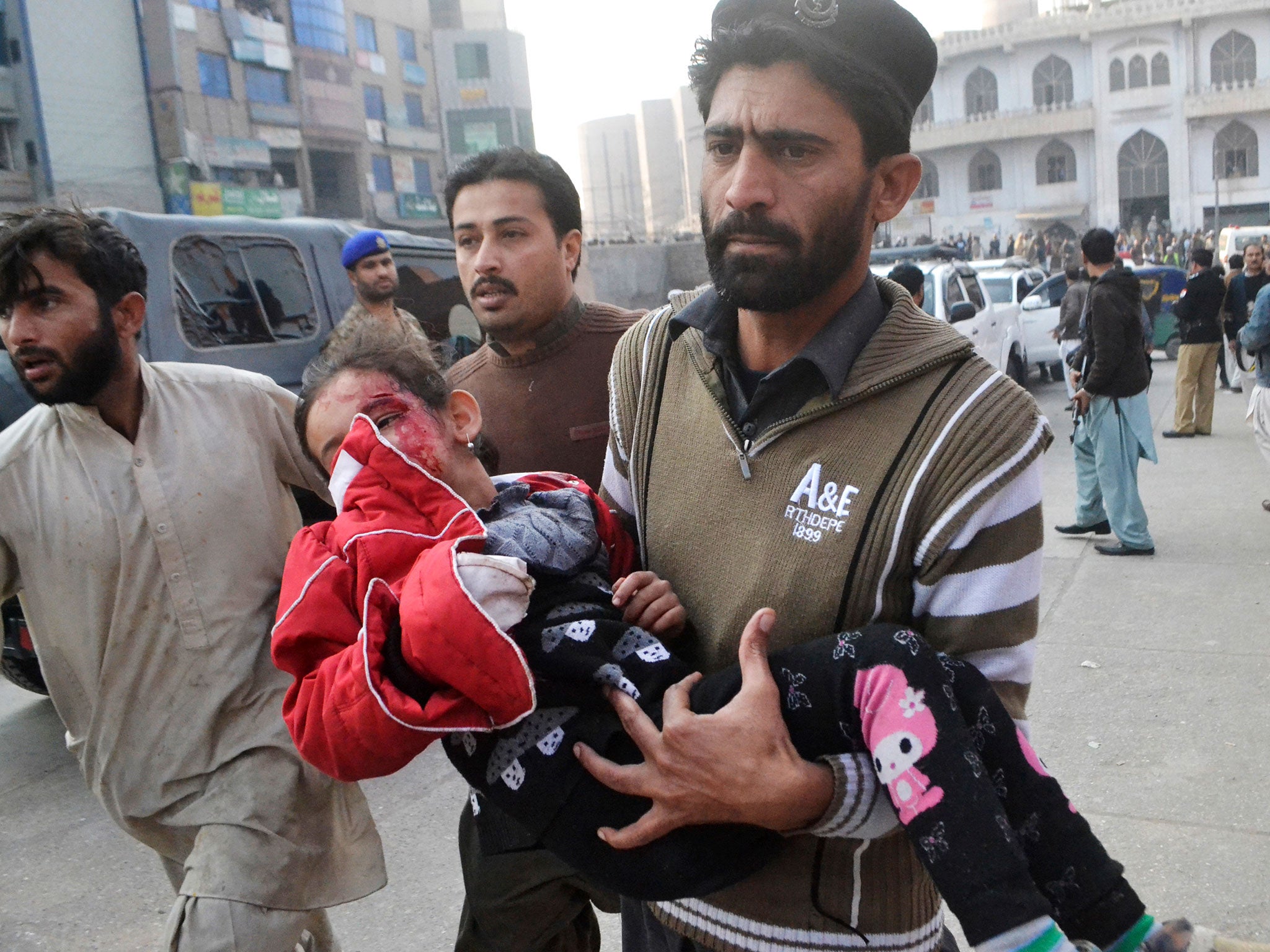Peshawar school attack: Who are the Pakistani Taliban and what do they want?
The Pakistani Taliban have claimed responsibility for an attack on a school in northern Pakistan which has left at least 126 people dead, including 84 children

Your support helps us to tell the story
From reproductive rights to climate change to Big Tech, The Independent is on the ground when the story is developing. Whether it's investigating the financials of Elon Musk's pro-Trump PAC or producing our latest documentary, 'The A Word', which shines a light on the American women fighting for reproductive rights, we know how important it is to parse out the facts from the messaging.
At such a critical moment in US history, we need reporters on the ground. Your donation allows us to keep sending journalists to speak to both sides of the story.
The Independent is trusted by Americans across the entire political spectrum. And unlike many other quality news outlets, we choose not to lock Americans out of our reporting and analysis with paywalls. We believe quality journalism should be available to everyone, paid for by those who can afford it.
Your support makes all the difference.Taliban gunmen have killed at least 126 people, including 84 children, at an army-run school in northern Pakistan, in what has been described as the worst militant attack in the country in years.
As troops surrounded the building to rescue hundreds of students taken hostage inside the school, the hardline Islamist Taliban movement immediately claimed responsibility.
The Pakistani Taliban, who are fighting to topple the government in the country and set up an Islamic state, have vowed to step up attacks in response to military operations against insurgents.
"We selected the army's school for the attack because the government is targeting our families and females," said Taliban spokesman Muhammad Umar Khorasani. "We want them to feel the pain."
Who are the Pakistani Taliban?
The majority of Pakistani Taliban fighters are ethnic Pashtuns from northwestern regions of the Afghan border.
They support the Afghan Taliban – many of whom fled to the Pakistani Pashtun lands after US-led forces ousted Afghanistan's hardline Taliban government in late 2001.
In 2007, more than a dozen factions based in different parts of northwest Pakistan formed a loose alliance, called the Tehrik-e-Taliban Pakistan (TTP), to fight against the Pakistani military.
The group was initially led by Baitullah Mehsud, who was killed by a missile-firing US drone in South Waziristan in August 2009.
He was replaced by Hakimullah Mehsud, who himself was killed in a US drone strike in November 2013.
Baitullah Mehsud was accused of a number of bomb attacks after the army stormed Islamabad's Red Mosque in July 2007 to crush a military movement, but his notoriety rocketed after the government named him the chief suspect in the assassination of former Prime Minister Benazir Bhutto.
Many senior Taliban are veterans of fighting in Afghanistan, but they have exploited poverty and widespread anti-US feeling to attract recruits.
According to the BBC, Hakimullah Mehsud was effectively in control of more than 30 militant groups operating in the north-west of Pakistan.
What is the relationship with the Afghan Taliban?
While the strategic goals and interests of the TTP and the Afghan Taliban vary, the Pakistan Taliban has sworn allegiance to Mullah Omar, the chief of the Tliban in Afghanistan, and sends fighters across the border.
The TTP have supported the Afghanistan Taliban in its fight against Western “occupation” forces and also want their version of Islamist rule in Pakistan.
There have, however, been differences between militant factions on whether to fight Pakistani security forces, with some opposing violence in Pakistan and wishing, instead, that the Taliban focus all of its attentions on Afghanistan.
What do the Pakistani Taliban want?
The Pakistani Taliban have been fighting to topple the government and set up a strict Islamic state. Following a major army operation against insurgents in tribal areas, the group has vowed to step up its attacks.
They have targeted security forces, checkpoints, military bases and airports – but attacks on civilian targets with no logistical significance have been rare.
Reuters contributed to this report
Join our commenting forum
Join thought-provoking conversations, follow other Independent readers and see their replies
Comments